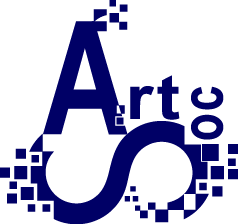Methodology
The main goal of the paper is to summarize selected developments in the field of artificial societies and agent-based modeling and suggest how this fundamentally new toolkit can contribute to solving some of the most complex scientific and practical problems of our time.
This paper consists of several parts. The first one considers the history of agentbased models. The second part is devoted to some interesting models of this class related to epidemiology, and the third one considers agent-based modeling of pedestrian traffic and evacuation of the population. The fourth part is devoted to issues of demographic processes modeling, and the fifth to the simulation of transport systems. Ecological forecasting is considered in part six, while the seventh is devoted to issues of land use, and the eighth part to urban dynamics. The ninth part considers models used for the reconstruction of historical episodes, and in the tenth part, we will briefly touch on the issues of conflict simulation. In the eleventh part of the paper, we will consider issues related to studying social networks using an agent-based approach. Agent-based models of economic systems are considered in the twelfth part. Undoubtedly, the scope of application of agent-based models is wider, but we decided to focus on these indisputably significant areas.




 YouTube
YouTube Requisites
Requisites